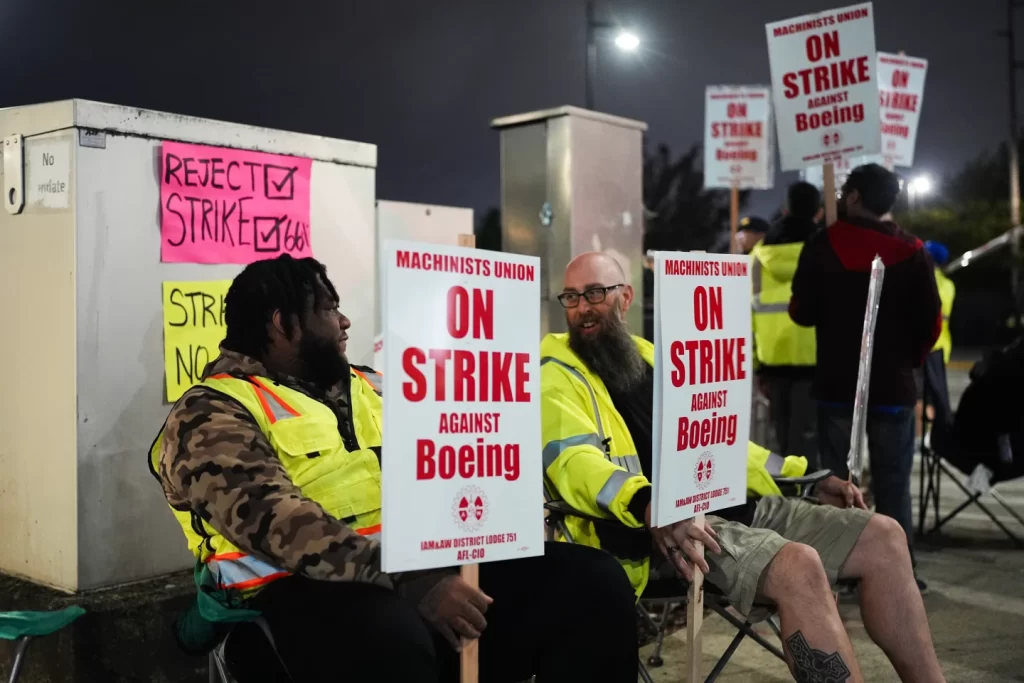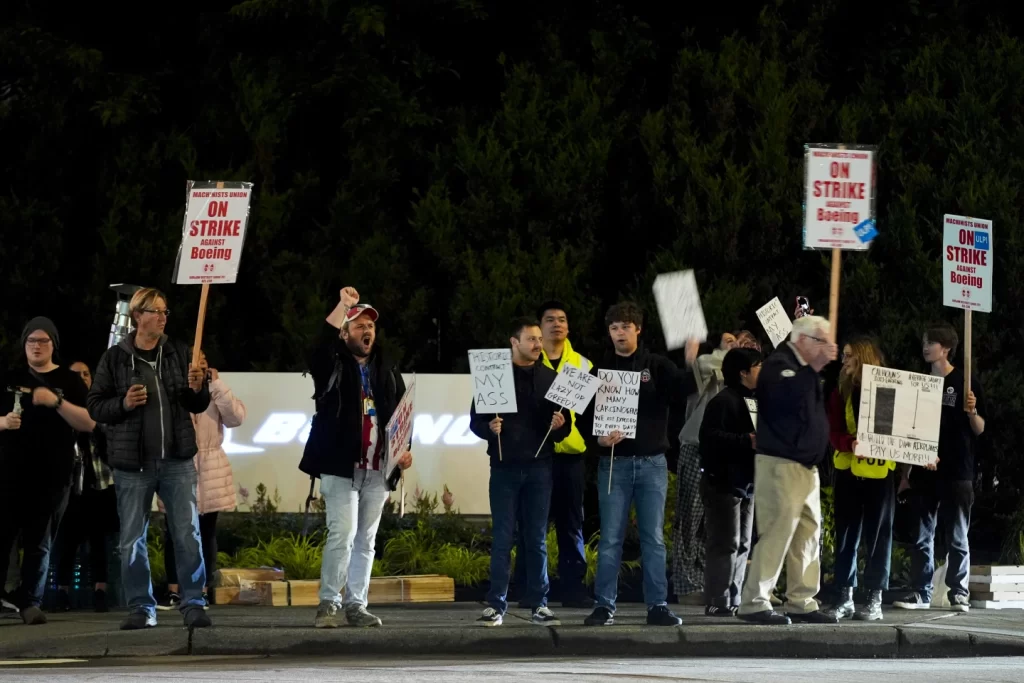As contract negotiations between Boeing and its machinists union reach a critical juncture, workers like Solomon Hammond are preparing for what could be a prolonged strike. Hammond, a 33-year-old toolmaker at Boeing’s Renton facility, exemplifies the growing frustration among the aerospace giant’s workforce over wages that haven’t kept pace with the rising cost of living.

“I’m prepared to strike indefinitely to secure a better contract,” Hammond told reporters outside the Renton plant. “Boeing’s offer just doesn’t line up with the current economic climate. The wages are simply too low.”
Hammond, who currently earns $47 an hour, a rate that would be considered substantial in many industries, says he still struggles to make ends meet. “I work paycheck to paycheck,” he explained. “Everything costs more these days — housing, food, healthcare. My salary just isn’t stretching as far as it used to.”

The toolmaker’s situation reflects a broader issue facing many workers in the aerospace industry and beyond. Despite earning what appears to be a competitive wage, many employees find themselves squeezed by inflation and escalating living costs, particularly in tech-heavy regions like the Seattle area where Boeing has a significant presence.
Boeing’s latest contract offer, the details of which have not been made public, has been met with skepticism by many union members. The International Association of Machinists and Aerospace Workers (IAM), which represents over 30,000 Boeing employees, has been in intense negotiations with the company for several weeks.

Union officials argue that Boeing, which has seen a rebound in orders as the aviation industry recovers from the pandemic slump, can afford to offer more generous terms. They point to the company’s recent financial reports, which show improving revenues and a strong order backlog.
For its part, Boeing maintains that its offer is fair and competitive within the industry. The company has cited ongoing challenges, including supply chain disruptions and increased material costs, as factors limiting its ability to meet all of the union’s demands.

The potential for a strike comes at a delicate time for Boeing, which is working to ramp up production of its popular 737 MAX aircraft after a prolonged grounding following two fatal crashes. A work stoppage could significantly impact the company’s ability to meet delivery deadlines and could have ripple effects throughout the global aviation supply chain.
Local businesses in Renton and other Boeing-dependent communities are watching the negotiations closely, aware that a prolonged strike could have serious economic consequences for the region.

As the deadline for an agreement approaches, both sides have expressed a willingness to continue negotiations. However, workers like Hammond remain resolute in their stance. “We’re not asking for the moon,” he said. “We just want a fair wage that allows us to live comfortably in the communities where we work. Is that too much to ask from a company like Boeing?”
The coming days are likely to be crucial in determining whether a strike can be averted. For now, Hammond and his colleagues continue their work, but with an eye on the clock and a readiness to walk out if their demands are not met.



